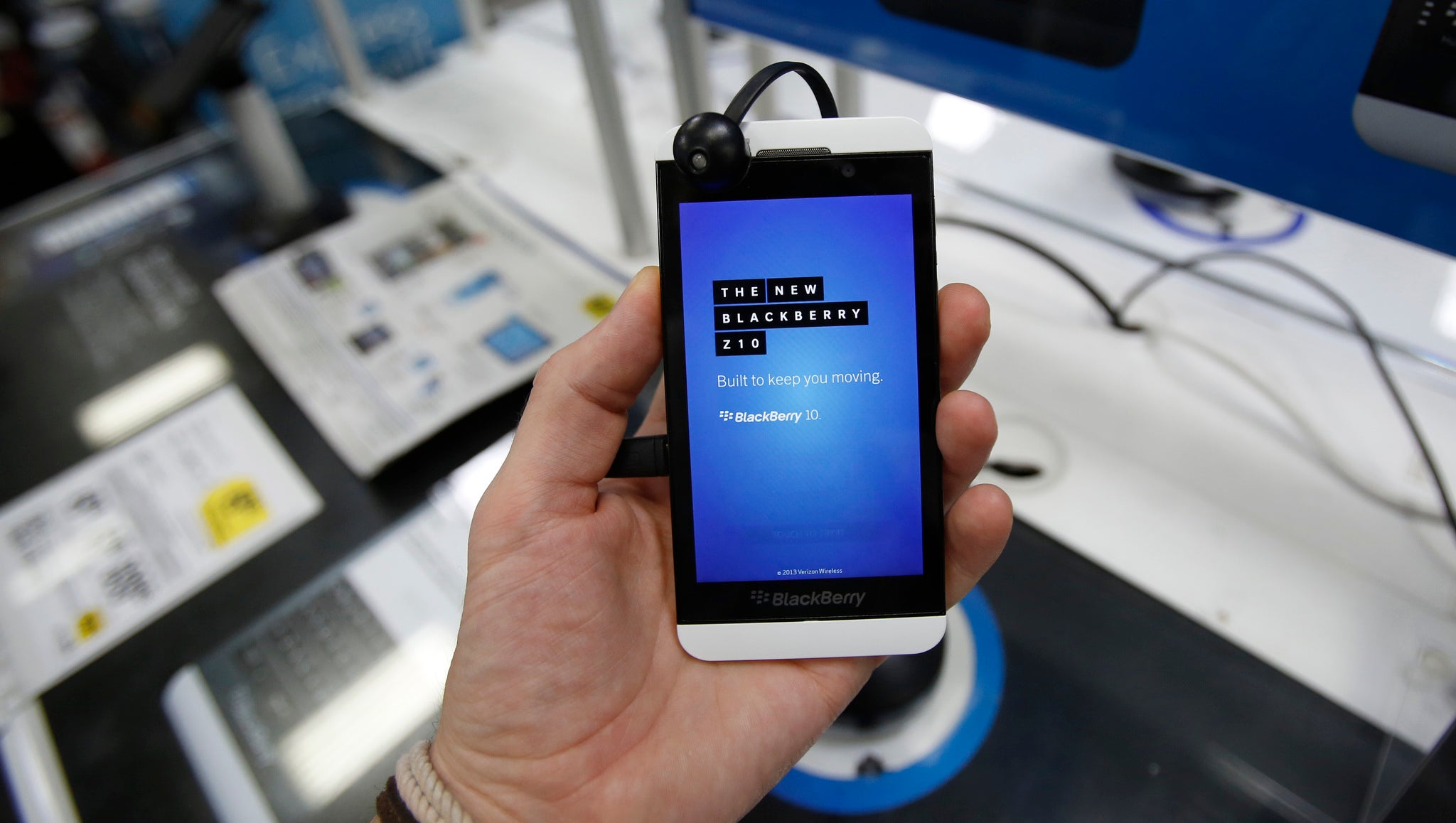An ailing BlackBerry to explore 'strategic alternatives'
Options could include sale of the company or going private

Your support helps us to tell the story
From reproductive rights to climate change to Big Tech, The Independent is on the ground when the story is developing. Whether it's investigating the financials of Elon Musk's pro-Trump PAC or producing our latest documentary, 'The A Word', which shines a light on the American women fighting for reproductive rights, we know how important it is to parse out the facts from the messaging.
At such a critical moment in US history, we need reporters on the ground. Your donation allows us to keep sending journalists to speak to both sides of the story.
The Independent is trusted by Americans across the entire political spectrum. And unlike many other quality news outlets, we choose not to lock Americans out of our reporting and analysis with paywalls. We believe quality journalism should be available to everyone, paid for by those who can afford it.
Your support makes all the difference.Struggling phone manufacturer BlackBerry have announced that they have set up an internal committee to examine options to keep afloat, including joint ventures, strategic partnership and the sale of the company.
“Given the importance and strength of our technology, and the evolving industry and competitive landscape, we believe that now is the right time to explore strategic alternatives,” said Timothy Dattels, chair of the committee, in an official statement.
The Canadian company were amongst the first to popularise the concept of having your emails always accessible from your phone and quickly became the staple handset of the business world.
BlackBerry’s phones are still popular in this sector (partially because of the expenses involved for businesses to shift to a new product) but have long been swamped by the likes of Apple and Samsung in the consumer market as the appeal of mobile evolved beyond just email access.
In an official statement the company stressed the importance of their new Blackberry 10 software, as used in the recently launched BlackBerry Q10 and BlackBerry Z10 handsets. These devices were intended to rejuvenate the company’s fortunes but failed to take off in the US market.
“We continue to see compelling long-term opportunities for BlackBerry 10, we have exceptional technology that customers are embracing, we have a strong balance sheet and we are pleased with the progress that has been made in our transition,” said Thorsten Heins, President and Chief Executive Officer of BlackBerry.
“As the Special Committee focuses on exploring alternatives, we will be continuing with our strategy of reducing cost, driving efficiency and accelerating the deployment of BES 10, as well as driving adoption of BlackBerry 10 smartphones, launching the multi-platform BBM social messaging service, and pursuing mobile computing opportunities by leveraging the secure and reliable BlackBerry Global Data Network.”
Shares in the company fell by 30 per cent at the end of June but since the announcement have risen 9.4 per cent in premarket trading.
BlackBerry's phones might be consistently out-gunned and out-marketed in the consumer sector of the market, but they continue to find support from large businesss and institutions.
The US Department of Defense recently announced that they had cleared the Z10 and Q10 smartphones for use on its networks, making the Balckberry 10 operating system the first Mobile Device Management system (MDM) to be approved in this way.
"Being the first smartphones to be supported on US Department of Defense networks further establishes Blackberry's proven and validated security model," said Scott Totzke, SVP of Blackberry's security group.
"With foreign entities - governmental and criminal - ramping up attacks on electronic communications and information systems, Blackberry provides government agencies with a proven partner that follows top-to-button security protocols."
Despite this the confidence of investors is uncertain. Tim Long, an analyst at BMO Capital markets, said "While a change in structure could result in a higher stock price in the near term, we do not envision any changes that would help BlackBerry reverse the significant smartphone share loss or rapid decline in service revenue."
Join our commenting forum
Join thought-provoking conversations, follow other Independent readers and see their replies
Comments